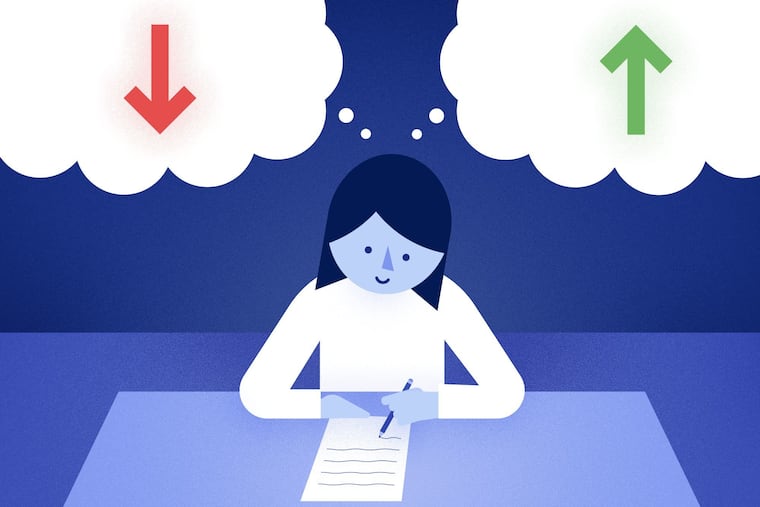Writing about experiences can teach us about what worked and what didn’t
Try to take time to write about times that you've succeeded and times that you've failed. Writing is thinking. And writing about your growing competence is thinking about your growing competence.

Last week, I told you about my daughter Amanda’s first experience with “hard math.”
My guess is that the young people in your life have their own stories to share. No doubt they have struggled and failed at something important to them. Surely they have stories of success, too — perhaps, as it was for Amanda, following a dark period when self-efficacy was at a low point.
If, as four decades of research have shown, self-efficacy grows with small wins, does anything turbocharge such learning?
A recent experiment supported by Character Lab suggests that experience is an even better teacher when followed by writing. Students spent 15 to 20 minutes writing about a time they failed, and at least one way this failure changed them for the better, as well as a time they succeeded, and the steps they took to “make this success a reality.” Compared to a control group, the students who did this writing exercise demonstrated greater academic persistence, which in turn predicted better grades the following marking period.
And I’ve seen the power of writing in my household. Here is Amanda’s story in her own words:
Before seventh grade, I considered myself a poor math student. I was never the smartest or the fastest or even the neatest person in the room. Yes, I was in the “advanced” track — but I failed my first two tests in Algebra 1, scoring 40% on the first and 54% on the second.
When I received that second failing grade, I cried. Not because I was fearful of my punishment — I knew there would be none — but because I felt ashamed: I’m not smart enough, not quick enough, not neat enough. I will never be able to do well in math. To his credit, my teacher offered me a chance to prove myself wrong. “I know you can do better,” he told me. “Retake the test this weekend. Not for a grade, of course. But show me what you know.”
That week, I studied for hours. I did every problem in the book, and then I did them again. I infuriated my mother, frustrated my father, and miffed my little sister. I drank coffee for the first time. Then, on Sunday morning, my dad drove me to church as usual. But instead of going to the service, my dad sat me down in an empty room and handed me the test. “You have an hour Amanda. Try your best. You got this.”
And then, I was off. I must’ve used 20 pages of my dad’s yellow legal pad, but I breezed through problems that had paralyzed me just one week earlier. By the end of the hour, my fingers ached and my hands were black with graphite. But my shame was gone. And in its place? Pride.
The surge of pride I felt that Sunday buoyed my motivation. The next few months were challenging, but I worked hard every night to keep up. I finished with an A in the class.
In hindsight it’s clear to me that trying, failing, trying again, and succeeding built confidence in a subject that I never thought I’d master. I learned that it is okay to mess up, because your failures do not define you.
What prompted Amanda to write this reflection? I wish I could say that I’d suggested it. But she showed it to me after the fact, having written it as part of an application that required a personal essay.
Try sharing your stories of failure and success with the young people you love. And consider framing writing assignments — whether for an English class or a college application — as a golden opportunity rather than an obligation. Writing is thinking. And writing about your growing competence is thinking about your growing competence.
Angela Duckworth is the founder and CEO of Character Lab and a psychology professor at the University of Pennsylvania. You can sign up to receive her Tip of the Week — actionable advice about the science of character — at characterlab.org.